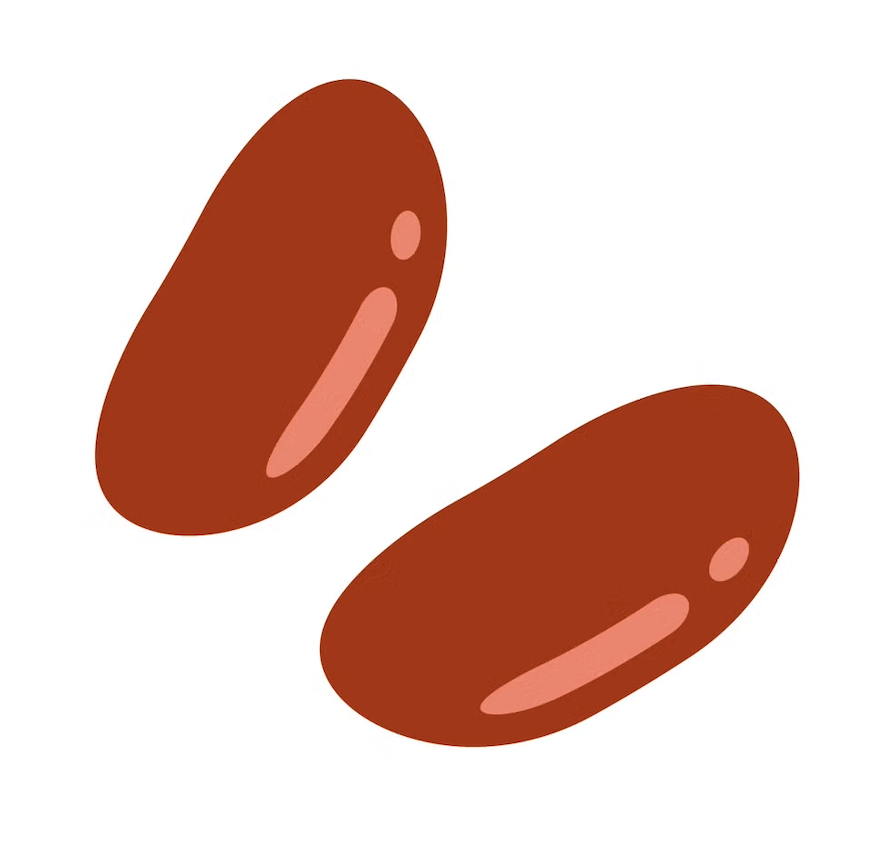It turns out we have no idea what certain emojis really mean
The glossary of terms from hit Netflix drama Adolescence has got everyone talking.
Words by Grazia

Whether you have teenagers at home or not, Adolescence, the new Netflix drama about a 13-year-old boy charged with the murder of his classmate shines a light on a very real epidemic of knife crime and the way in which teenagers are being radicalised online.
It also introduces many of its viewers to ‘the manosphere’ – the group of online forums, blogs and websites that promote masculinity, misogyny and opposition to feminism. What makes the allure of this cult so difficult to understand is not just its violent rhetoric towards women, but the language of emojis that many of its members use to communicate.
Little did we know the kidney bean emoji means more than an ingredient and a yellow heart is not just a symbol of endearment. Adolescence has foregrounded a subversive language of emojis – and parents, teachers, siblings and friends should all take note.

The red pill
In episode two, which is set in Jamie and Katie’s school, Detective Luke Bascombe (Ashley Walters) attempts to decipher what their social media correspondence really means. His son Adam (Amari Bacchus) then pulls him aside to explain that he has been reading the conversations all wrong. The red pill emoji, he explains, means ‘I see the truth’. ‘It’s a call to action by the manosphere.’
The term is inspired by the 1999 film The Matrix where the red pill symbolises an awakening to the truth. In the context of the manosphere, it refers to the ‘truth’ behind gender dynamics and the so-called ‘real’ nature of women’s behaviour and their dating preferences.
As researchers Megan Kelly, Alex DiBranco and Julia DeCook write, ‘Red pillers awaken to the ‘truth’ that socially, economically and sexually, men are at the whims of women’s (and feminists’) power and desires.’

The 100 emoji
Adam then explains that the 100 emoji refers to the ‘80/20 rule’. He says, ’80 per cent of women are attracted to 20 per cent of men. Women, you have to trick them because you’ll never get them in a normal way. 80 per cent of women are cut off… she’s saying he’s an incel.’
DI Bascombe then asks how Jamie could be an incel (involuntary celibate) when he’s 13 years old and Adam says, ‘She’s saying he always will be.’
It comes from the Italian economist Vilfredo Pareto’s principle that 80 per cent of consequences come from 20 per cent of causes – noting that 80 per cent of Italy’s land was owned by 20 per cent of its people.
In the context of incels, it means the majority of men are romantically unsuccessful. The rule is used as a warning about the damaging effects of the current dating scene and increased competitiveness in online dating. It implies that women are ‘picky’ and that they only ‘date up’.

Dynamite emoji
Another emoji explained in the series is the dynamite explosion, which is described as an ‘exploding red pill’, meaning that someone has radical incel beliefs.

Kidney bean
According to Adolescence, the kidney bean emoji is used when someone wants to self-identify as an incel. It is deployed in a similar way to the coffee bean emoji, which has been popularised on platforms like 4Chan and Reddit as a way of disparaging women and reinforcing harmful stereotypes.
Based on an older meme on manosphere forums, the coffee emoji or the phrase ‘women coffee’ is sometimes used to mock women. Apparently, it is from a game called Team Fortress 2 where two men drink tea and say ‘women’ and then laugh. It is therefore used to encourage other men to laugh at a woman or something she is doing.
Other terms to be aware of
Chads and Stacys:
Chads are the ‘ultimate alpha’ – the most masculine, powerful and sexually attractive man who attract the most ‘Stacys’. While Stacys are a feminine ideal – attractive, obedient and unattainable women who only date ‘Chads’.
Cuck:
Shortened from cuckold, a cuck is a man whose wife has been unfaithful (first used in 1250). It is associated with ‘humiliation pornography’ in which a man derives sexual pleasure from watching his partner have sex with another man. The term is most commonly used as an insult because ‘allowing’ your partner to have sex with someone else goes against the heteronormative notions of male sexuality and ownership.
(N)awalt:
(N)awalt means (not) all women are like that. The more common form is ‘awalt’ to describe the negative stereotypes of women. Awalt suggests that women are vapid, insecure, promiscuous and driven by emotions instead of rationality. It emphasises that men are everything women are not – moral, rational, intelligent, loyal, honourable and individualistic.
Photo: Netflix
